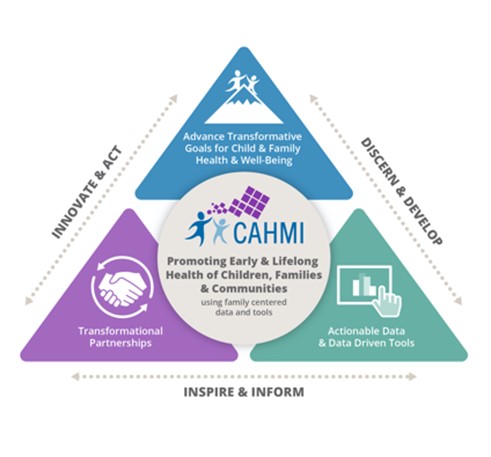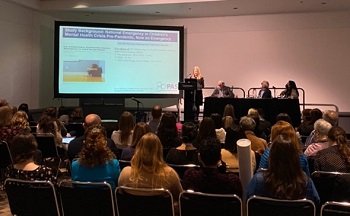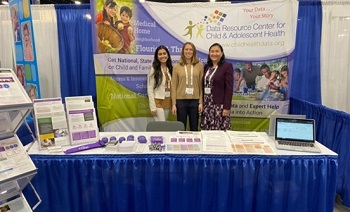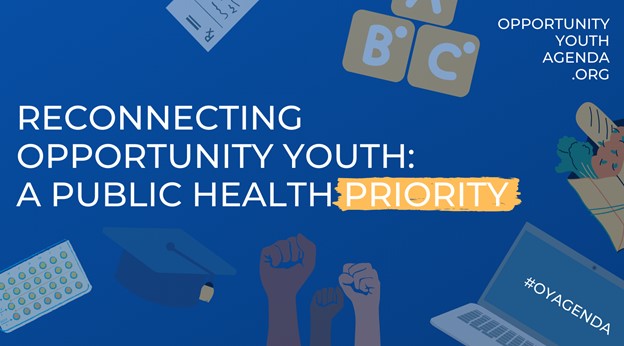Research & Practice Highlights
2022 ICFP in Thailand
Gates Institute Continues Momentum for 2022 ICFP in Thailand
ICFP did it again! The sixth annual International Conference on Family Planning received a record number of abstracts for this year’s conference with over 3,200 individual and pre-formed panel abstracts and 700 reviewers from the FP and SRHR communities worldwide. We have a very exciting scientific program planned and look forward to having everyone join us in Pattaya to share the latest family planning research, information, and advocacy wins.
On 15 March, Thailand’s National Steering Committee (NSC) convened for the first time following ICFP’s postponement due to the COVID-19 pandemic. The NSC held a one-day meeting in Bangkok at the Ministry of Public Health to discuss national sponsorship opportunities, opening ceremony arrangements, invited sessions, and more. Gates Institute Senior Program Officer Kellie Welborn provided an overview of the 2022 ICFP and new information on virtual participation options for delegates.
Other meetings of note included UNFPA’s regional and local offices, Bangkok University, Chulalongkorn University, Thailand’s Convention & Exhibition Bureau, Bangkok’s French International School, the Population and Community Development Association, Pattaya City Mayor Hon. Sontaya Kunplome, and the Pattaya Freelance Artists Council.
The ICFP Secretariat is working diligently with partners, core organizing members, and individuals across the FP and SRHR communities to make the sixth ICFP our biggest, most inclusive conference to date - and we look forward to seeing you there this November!
Learn more about GI’s path to planning #ICFP2022

Congratulations to the 2022 ICFP Youth Trailblazers
Gates Institute and the International Conference on Family Planning are proud to announce the 50 global youth leaders working in family planning and sexual and reproductive health and rights who have been awarded the ICFP 2022 Youth Trailblazer Award. More than 300 youth worldwide applied for the honor, which is named in recognition of the important leadership and innovation youth bring to family planning and SRHR.
Join us in congratulating these incredible leaders helping to push the field forward and expand access to family planning and SRHR for all!
The Challenge Initiative
Pakistan’s President Attends Formal Islamabad Launch of TCI’s Sixth Hub
The Challenge Initiative (TCI) formally launched its new Pakistan hub on March 16, 2022, in Islamabad, Pakistan. Pakistan’s honorable President Dr. Arif Alvi participated in the high-level launch, where he said it was the responsibility of media and Ulema (Muslim scholars trained in Islam and Islamic law) to promote family planning in the country because comprehensive and continuous awareness is necessary for not only a mother and child’s health but also for national development.
TCI Pakistan is TCI’s sixth hub with Greenstar Social Marketing serving as the regional hub partner. To help educate and destigmatize family planning, the president urged the media to ensure frequent messaging in their content, such as dramas and morning shows. Similarly, he said the Ulema should use their pulpit for similar messaging as they had done during the COVID-19 pandemic.
Learn More About TCI's New Partnership
Performance Monitoring for Action
What impact has COVID-19 had on intimate partner violence during pregnancy?
The COVID-19 pandemic has global drawn attention to what many researchers and violence support programs already know—one in three women will experience intimate partner violence (i.e., physical, sexual, or emotional violence perpetrated by a romantic or sexual partner) over the course of their lives and this violence will likely impact their health and well-being. At the beginning of the COVID-19 pandemic, reports described how lockdown measures could increase intimate partner violence occurrence and severity where women were often locked down with perpetrators.
New research from PMA Ethiopia examined the impact of such restrictions on intimate partner violence during pregnancy. Read our blog post and our complete findings.
Advance Family Planning
New Power of Advocacy Report Charts the Impact of AFP
On April 26, Advance Family Planning (AFP) launched a new impact report, The Power of Advocacy, that tells AFP’s story of building partnerships and achieving policy and funding change to improve family planning through advocacy. Available in English and French, the report marks the culmination of more than a decade of progress fueled by dedicated advocates who mobilized around a bold advocacy agenda under AFP.
A virtual launch event featured the voices of advocates who are creating deep and lasting change in their countries and communities. Watch the recording here in English.
The Power of Advocacy chronicles the journey from 2009 to the present, outlining the arc of AFP’s story—our challenge at the outset, how we responded, the initiative’s impact over time, and lessons learned to shape the family planning advocacy well into the future.
AFP’s success clearly demonstrates that a sustained, multi-year, global advocacy initiative for family planning works. Yet, as AFP draws to a close in 2023, our work is far from finished. Local, national, and global family planning champions will carry forward what we started.
Download the report and share the social toolkit.
Update from CAHMI’s Research and Engagement in Action!

News from the Child and Adolescent Health Measurement Initiative (CAHMI): The CAHMI, led by Christina Bethell, continues to advance new research, data for policy and projects to advance evidence into practice to improve child and family health. Below are a few recent highlights:
Public Health Forum on Prioritizing Flourishing: Our Greatest Public Health Opportunity
Dr. Bethell of PFRH and Dr. Anita Shankar of the Dept. of International Health along with other colleagues at JHU and Baltimore City Councilmember Zeke Cohen held a forum on April 29th focused on advancing a positive public health approach that proactively fosters resilience, qualities of flourishing and the 23 skills outlined in a new set of Global Inner Development Goals. The forum focused on these issues as they relate to healing trauma, population health improvement and achieving social justice and the Global Sustainable Development Goals (SDGs).
The CAHMI is excited for the long-awaited release this week of new 5-year state, regional, and national estimates for Title V Block Grant National Outcome (NOMs) and Performance Measures (NPMs). The CAHMI founded and has led the Data Resource Center for Child and Adolescent Health for decades, providing point and click access to micro data and datasets, codebooks and supports to liberate and expand the use of the NSCH for policy, advocacy and research.
2022 Pediatric Academic Societies (PAS) Meeting Science Panel and Hands-On Workshop

Drs. Bethell and Gombojav of PFRH led a Hot Topic Science Panel on leveraging pediatric primary care to address the child mental health crisis and promote relational health on April 23rd at the first in-person PAS meeting since the 2019. The meeting was held in Denver, CO. They also led a hands on workshop on the CAHMI’s Cycle of Engagement Well Visit Planner approach to care as a part of Dr. Bethell’s RWJF grant to advance the implementation and scaling of this evidence based innovation.
Right photo: Dr. Bethell presenting during our science panel session at PAS, “Leveraging Pediatric Primary Care to Promote Equity in Children’s Relational and Mental Health and Mitigate Adversity
The Hot Topic Session presented findings from a recent CAHMI implementation study on the Cycle of Engagement Well Visit Planner approach to care as well as from two recent studies focused on promoting whole child and family approaches to assessing and addressing needs and risks and to proactively promote positive and relational health for children with mental health problems and for all children. This includes results from a paper Drs Bethell and Mendelson of PFRH collaborated on a study summarized in this press release: Study Reveals Fourfold Range in Rates of Mental Health Problems and the Power of Relational Health to Build Resilience Among U.S. Children.
Findings were also presented from a related study conducted by Dr. Bethell in partnership with others, including Dr. Andrew Garner –author of the American Academy of Pediatrics’ updated policy statement on toxic stress and relational health promotion: Toward Measurement for a Whole Child Health Policy: Validity and National and State Prevalence of the Integrated Child Risk Index (ICRI)

This paper validated a new Integrated Child Risk Index (ICRI) that assesses the complexity of children’s risks across medical, social and relational health risk domains and calls for personalized and integrated systems of care. Findings on the ICRI for all states and child subgroups can be found here on the CAHMI’s new (and still evolving) RWJF funded “Possibilities Data Query”.
Right photo: CAHMI Team members at CAHMI’s exhibit at PAS (left to right: Rebecca Zavala, Krista Woodward, Naraa Gombojav)
Reconnecting Opportunity Youth: A Public Health Priority

The Center for Adolescent Health, in conjunction with the American Public Health Association (APHA) and the Bloomberg American Health Initiative, released a federal policy agenda to address the needs of the more than 4 million young people ages 16 to 24 who are not enrolled in school or employed. These youth are known as “opportunity youth” in recognition of the tremendous potential they hold when given proper access to resources and supports to address obstacles in their lives.
The agenda, “Reconnecting Opportunity Youth: A Public Health Priority,” was developed by faculty from the Bloomberg School, experts at APHA, and a coalition of national organizations that advocate for young people.
The agenda aims to expand opportunities and offer better ways to support youth who are disconnected from education, employment, and essential services, including nutrition, housing, and medical supports. Prevention of youth disconnection and promotion of positive youth development from an early age are also key goals of the agenda.
The policy agenda includes more than 50 recommendations that relate to early childhood education, sex education and reproductive care, restorative approaches to justice, education and career advancement, comprehensive social supports, and data collection.
“Between ages 16 and 24, youth are dealing with a lot of change and uncertainty,” said C. Pluff, program manager at APHA’s Center for School, Health and Education. “They need stronger links to services and more supportive environments to graduate high school and make meaningful connections to jobs and higher education.”
“These recommendations are aimed to help young people connect and thrive,” said Tamar Mendelson, director of the Center for Adolescent Health and a Bloomberg Professor of American Health. “Implementing this agenda will make an enormous difference.”
The agenda’s goal is to bring attention to a population that has not had a collective voice and to build more support from the public, and ultimately lawmakers, for equitable policies that prevent disconnection and provide support to this group.
A public health approach to youth disconnection is needed because of the strong links between educational and economic outcomes and overall health and well-being. Many of the factors that lead to youth disconnection—including poverty, mental health concerns, or involvement with the justice system—are either directly related to, or considered one of, the social determinants of health. Disconnection is also an issue of health equity because it disproportionately impacts Black, Latinx, and Native youth. Addressing the needs of opportunity youth will help build healthier, more equitable, and thriving communities.
“Cut off from critical resources and experiences—from mentors and credentials to internships and jobs that foster feelings of agency, dignity, and belonging—young people who are out of school and out of work struggle to lay the groundwork for flourishing adulthoods,” said Kristen Lewis, director of the Social Science Research Council’s Measure of America project. “The Opportunity Youth Agenda points the way toward a better future for these young people and for the country as a whole.”
Listen to CAH Director Tamar Mendelson discuss the agenda on the American Health Podcast.
The Boston Birth Cohort 21st Anniversary & Other Updates
The Boston Birth Cohort marks 21st anniversary of continuous NIH funding: The Boston Birth Cohort (BBC) was established by Dr. Xiaobin Wang when she was a pediatrician at the Boston Medical Center. BBC was designed to study environmental and genetic determinants of preterm birth and related adverse pregnancy outcomes, and early life origins of pediatric and adult diseases, including food allergies and asthma, cardiometabolic outcomes, and neurodevelopmental disorders. BBC is among the largest and longest US minority birth cohorts, consisting of ~8,700 US urban, low-income, predominantly Black, and Hispanic mother-child pairs, who were enrolled at birth and a subset of them were followed prospectively up to age 21 years. As a result of a dozen NIH funded studies over the years, the BBC has obtained extensive longitudinal epidemiological and clinical data, along with extensive biorepository and maternal and child multi-omics, including genomic, epigenomic, and metabolomic data. About 150 peer-reviewed publications have been derived from the BBC, the majority were first-authored by the trainees in collaboration with multi-disciplinary teams across Hopkins and across institutions. With a new NIH R01 grant awarded (2R01HD041702-17, period 2022-2027), the BBC will further integrate proteomics as a powerful tool to elucidate the link and underlying mechanisms between preterm birth and longitudinal trajectories of cardiometabolic outcomes from birth up to young adulthood.
Collaborative Research Highlight: A study titled “Mediterranean-Style Diet and Risk of Preeclampsia by Race in the Boston Birth Cohort ” by Minhas et al. was published in J Am Heart Assoc. 2022. This paper was selected for news release by the American Heart Association and Johns Hopkins University and has received broad media attention. This study is a collaborative effort of faculty and trainees at the Department of Medicine, Department of Epidemiology, and the Center on the Early Life Origins of Disease. This paper can be found at https://www.ahajournals.org/doi/10.1161/JAHA.121.022589
Special Event on the National Women's Health Week May 8–14, 2022: On 5/9/2022, Dr. Xiaobin Wang served as the emcee for the Johns Hopkins – FDA workshop on “Leveraging Real-World Data to Study Medication Use in Pregnancy and Lactation”, a collaborative effort of the Johns Hopkins Center of Excellence in Regulatory Science and Innovation (CERSI) and the US Food and Drug Administration’s Office of Women’s Health. This scientific conference brought together experts to share their research and insights with scientists, clinicians, FDA staff, and the public on this important topic. The workshop had more than 600 participants. The recording of the workshop can be found at https://www.jhsph.edu/research/centers-and-institutes/center-of-excellence-in-regulatory-science-and-innovation/news-and-events/FDA%20OWH-CERSI-Collaborative-Workshop.html.
Resource and Coordinating Center
The National Health, Lung and Blood Institute, in partnership with multiple federal partners, recently awarded Johns Hopkins University the role of Resource and Coordinating Center (RCC) for the project Early Intervention to Promote the Cardiovascular Health of Mothers and Children (ENRICH). The Home Visiting Applied Research Collaborative (HARC) plays an integral role in co-leading this exciting new initiative. Dr. Cynthia Minkovitz is a multiple principal investigators (MPIs), along with Dr. Stephan Ehrhardt from the Department of Epidemiology and the Johns Hopkins Center for Clinical Trials and Evidence Synthesis (CCTES) and Dr. Lisa Cooper from the School of Medicine and the Johns Hopkins Center for Health Equity.
The purpose of ENRICH is to test the effectiveness of an implementation-ready intervention, delivered in the context of early childhood home visiting, to promote and address disparities in maternal and early childhood cardiovascular health. This is an exciting opportunity to tailor interventions to diverse populations, test what works best, for whom, under what conditions, and address health equity. The RCC will work closely with NIH scientists and seven clinical centers to carry out the project over the course of seven years.
In the first two years, the RCC will support the clinical centers in designing the trial design, developing a common intervention, and conducting pilot tests of potential interventions to address cardiovascular health within the context of home visiting. In the last five years, the RCC will support the clinical centers in implementing the common protocol and testing a common intervention across all sites with a common protocol. Each clinical center will recruit 500-600 mother-child dyads and assess the cardiovascular health for mothers and young children while partnering with other entities within the early childhood system of care. The RCC will facilitate coordination across the clinical centers, create common data elements and measures, maintain a central database, analyze the data and disseminate process and impact findings. The RCC and clinical centers will also engage early-stage investigators in all aspects of the project.
In her role as MPI, Dr. Minkovitz will leverage the resources of the Home Visiting Applied Research Collaborative (HARC), a research and development platform within the Early Childhood Services Research Program. HARC seeks to strengthen home visiting services by promoting research that answers the question, “What works best for whom, under what conditions, why and how.” HARC has developed a framework called the Precision Paradigm to help researchers design and test interventions to answer this question.
New Systematic Review Assesses Maternal and Child Health Outcomes Associated with WIC Participation
A team from The Johns Hopkins Bloomberg School of Public Health and Johns Hopkins School of Medicine conducted a systematic review to evaluate the evidence regarding maternal and child health outcomes associated with participation in the Special Supplemental Nutrition Program for Women, Infants and Children (WIC). The work was conducted through funding provided by the Department of Health and Human Services Agency for Healthcare Research and Quality (AHRQ) to the Evidence Based Practice Center (EPC) in the School of Medicine. The report, “Maternal and Child Health Outcomes Associated with the Special Supplemental Nutrition Program for Women, Infants, and Children (WIC)” was released in April 2022. Faculty involved in the review included Drs. Laura E Caulfield (IH), Wendy L Bennett (PFRH), Susan M. Gross (PFRH), Eric R. Bass (SOM), Maya Venkataramani (SOM), S Michelle Oguwole (SOM), and Kristen Hurley (IH).
The review identified that maternal WIC participation during pregnancy is likely to be associated with reductions in infant mortality and lower risk of preterm birth and lower risk of low-birthweight infants. The review also identified that child WIC participation is likely to be associated with improved diet quality of children. WIC participation may be associated with increase preventive health care utilizations and immunizations. The evidence was insufficient to conclude regarding WIC participation and overweight in children 2 to 4 years, however, the 2009 WIC food package change may have resulted in lower risk of child overweight. The report may inform the next review of the WIC food package, and areas for research.
